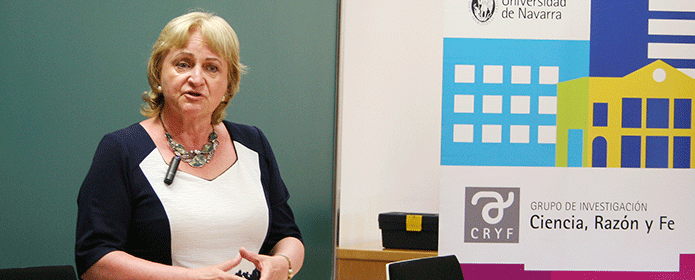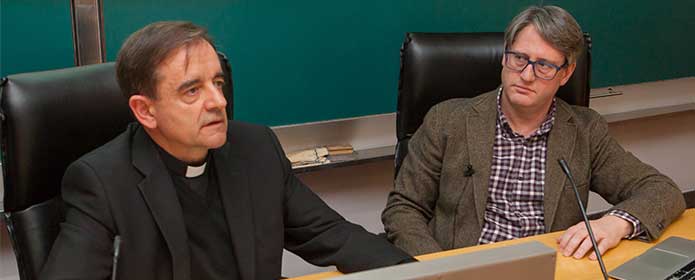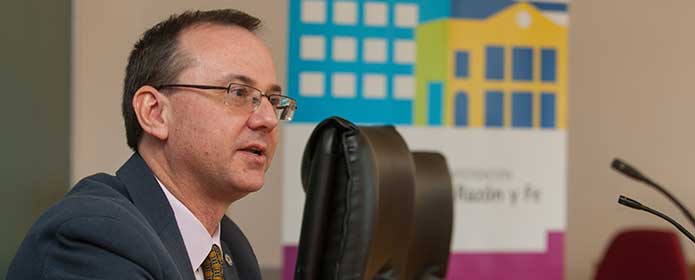Agnieszka Lekka-Kowalik discusses at the University whether the experience of researcher can ever pose a methodological and ethical problem.
The professor of Philosophy at the John Paul II Catholic University of Lublin (Poland) gave a lecture on seminar June group 'Science, reason and faith'.

Agnieszka Lekka-Kowalik, PhD in Philosophy and professor at the John Paul II Catholic University of Lublin (Poland), analyzed at the University of Navarra whether the experience of researcher can in any case pose a methodological and ethical problem. She did so at the framework of the seminar of the group 'Science, Reason and Faith' (CRYF) held on Tuesday, June 18.
During the session, the professor recalled that, in the society of knowledge, there is a "dictatorship of experts" and at the same time a decreasing trust in them due to the "duels" that occur between them, and pointed out that in the development of the Philosophy of experience lies the solution.
In his lecture, he considered scientific expertise as something that is supposed to transform the knowledge into "capacity to act". And he argued that expertise is an implicit statement of epistemic ethical and methodological values.
He built his argument by analyzing two issues: On the one hand, the use of data based on experience; and on the other, hitting on the expected result . To analyze the first, he emphasized that the use of data is an acknowledgement of its credibility, and since the knowledge is hypothetical, there is also an acceptable level of uncertainty. He also pointed out that "there is an abundance of data and therefore the research questions and data can be selected in such a way as to support the desired actions."
On the expected result he raised several questions: Is experience a recommendation for action or does experience only select effective means to achieve the goal of director? He concluded by stating that there is no value-neutral experience and that it is impossible to divide experience into epistemic-methodological and ethical elements.
Agnieszka Lekka-Kowalik is a professor of Philosophy at John Paul II Catholic University in Lublin (Poland). Master's Degree at Chemistry by Maria Curie-Skłodowska University in Lublin, doctorate and habilitation at Philosophy by KUL, she is a co-founder and member of the Polish association for assessment of Technology. Her main areas of research are: Philosophy of science, ethics of research, information ethics, general methodology of science and logic internship.


